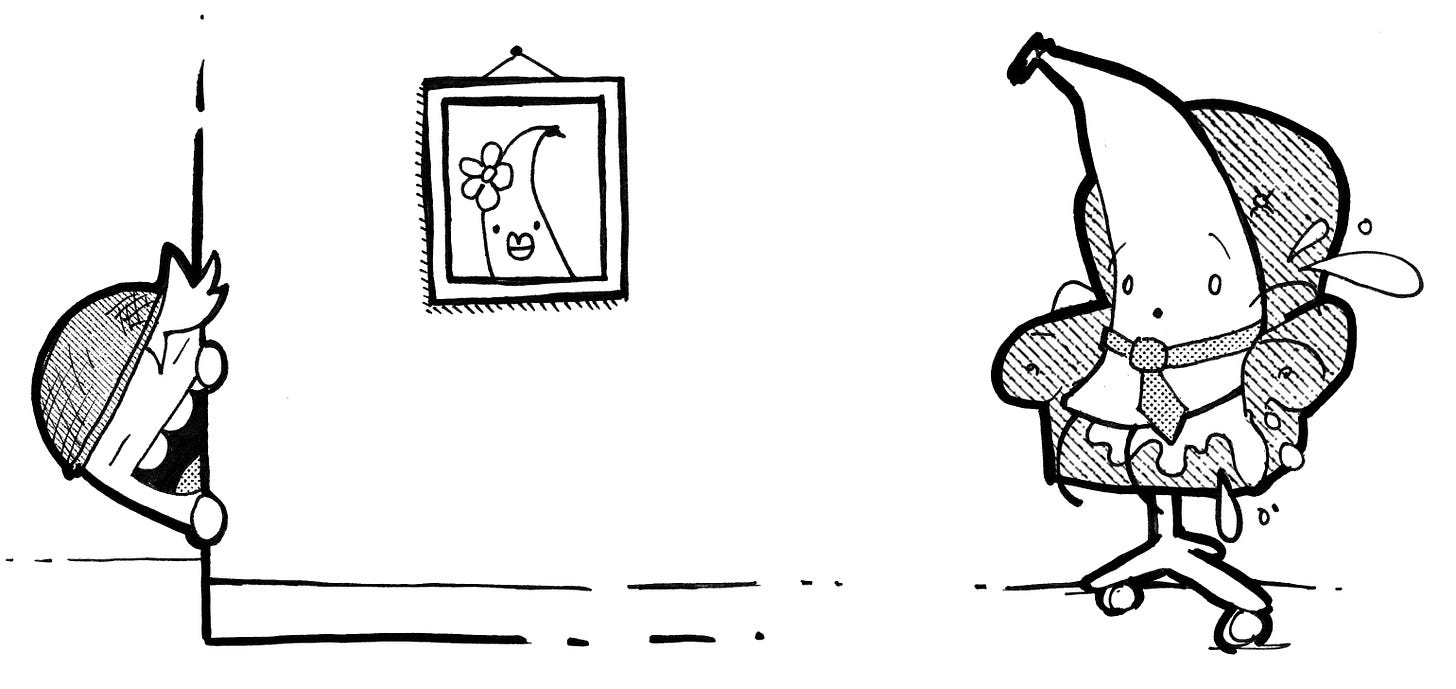5. Duty (definition)
NOTE: if you’re new to Ground-Up Governance, or are finding anything a bit strange or confusing, you might want to START HERE.
Have you ever been in a situation where you basically HAD to do something no matter how you felt about the whole thing? Like when you had to take a bath as a little kid, or in college when the firefighters came and made you put out your killer backyard bonfire? Or when you had to decide whether to put a super-mushy brown banana on Mr. Bananaman’s favourite chair because it would be hilarious when he sat on it, even though you knew it would be wrong and make him feel bad. In theory, you COULD have chosen (or tried) to go against what you were *supposed* to do, but the consequences were probably not worth it. Firefighters, for example, know a lot more about fire than you do and can get you in a lot of trouble if you ignore them. Duty is basically just your obligation to follow someone else’s rules or laws (like the firefighters) or to look out for someone else’s interests (like your parents not wanting you to smell awful), or to do what’s morally right (like not making Mr. Bananaman feel bad). In a sense, duty is a bit like a mashup of authority and accountability – for example, someone else has authority to make you do something, and you have a duty to get it done.





